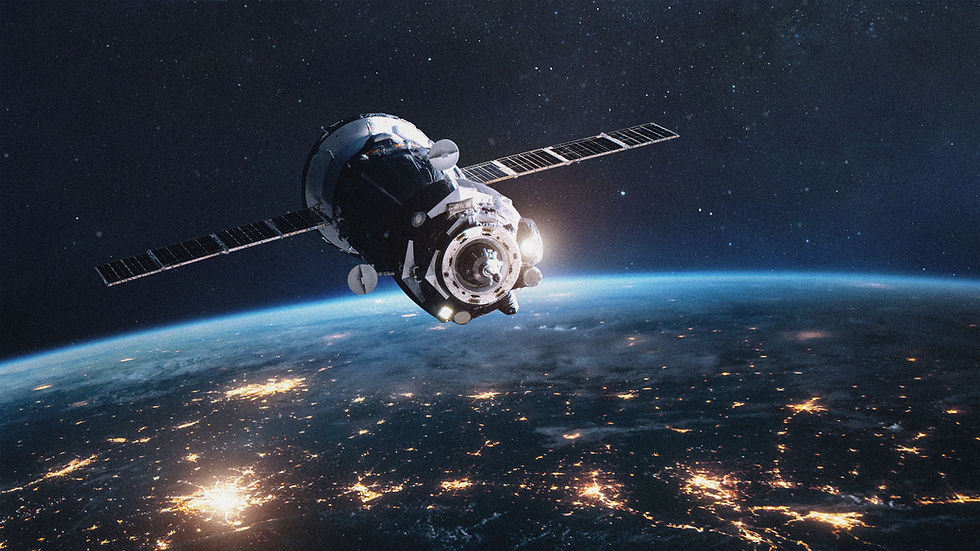The Outer Space Treaty of 1967: Critical Contemporary Discussions of Space Ethics
- Amanda Grodman

- Dec 14, 2022
- 3 min read
Updated: Jun 2, 2023
Lyndon B. Johnson once said, “No national sovereignty rules in outer space. Those who venture there go as envoys of the entire human race.” Contemporary human presence in space seems minimal, considering the only ongoing habitation include the few in the International Space Station (ISS). Yet, with the seemingly distant conflict of space debris, along with not-so-distant conversations on spatial colonization, discussing ethics about space isn't so obscure–and it shouldn’t have to be. To make meaningful discoveries, developments, and habitation possible in space, the logistics and precedents must be outlined to ensure space is not only safe for its visitors, but also that the integrity of space is preserved. Here’s a brief history on space ethics, policy, and law–along with what exactly it means to be a space lawyer in today’s space economy.

Space law can first be seen emerging in the late 1960s, which paralleled the discussion of space exploration itself, during the height of the Cold War. The Outer Space Treaty (OST), which was originally drafted in 1967 (and was previously quoted by President Johnson) and has since been edited, protects spatial integrity by prohibiting weapons of mass destruction (WMDs) and general hostile space efforts. However, the OST isn’t completely applicable to contemporary situations due to the rise of private exploration companies and similar investors (click the link to see a detailed history of space law). In addition, debates on space debris and pollution remain prevalent, but could not have been predicted in the original draft. Subsequent implementations and proposals sought to address what the OST emitted–yet popularity during this fragmented time remained sparse. What the treaty does recognize, however, is the lack of personal sovereignty in space, along with the benefit of space utilization for all nations. Ultimately, debates on spatial debris and WMDs in space spans back to the argument of if frequent travel to space is ethical, a topic that has orbited space policy since the first OST draft. Discussions on space visitation continue to adapt, provoking an increased need for updated spatial legislature and guidelines–only possible with the work of space lawyers.

Space ethics are important in novel discussions, but the true mediators and implementers of these debates are space lawyers. These individuals combine the logistic perspective of law with the tangible factors of space. This field is greatly diverse, encompassing different scales from domestic to international legislature. Particularly, space lawyers may be involved in anything from approving satellite presence to ensuring that similar technologies in space are regulated. In a contemporary sense, questions such as who is responsible for space pollution (space debris, space dust, etc.) to the morality of space tourism must be addressed. Those interested in problem solving, space, and policy implementation should consider this field. Certainly, a demand for more individuals who are able to both present scientifically-proven cases–and publicly defend these claims–will emerge in coming years. And we know just the lawyer who emphasizes these concerns.

In this episode of “Let’s Go to Space: BLUESKY Learning,” Episode 84: Space Law and Ethics with Michelle Hanlon, we’re joined with Michelle Hanlon, the Co-Director of the Air & Space Law Program at the University of Mississippi School of Law and co-founder of For all Moonkind. In addition, she is the Editor-in-Chief of the Journal of Space Law and the Journal of Drone Law and Policy, certainly adding to her impressive portfolio of space law experience. Ms. Hanlon provides a unique perspective as a space lawyer–something younger students who are both “talkies” and “techies” should consider as a future pathway. She also presents strong points in discussing the current scope of space law, and how space ethics should continue to orbit in contemporary space-colonization discussions. Learn more about Michelle Hanlon or visit our other weekly podcasts to hear from other speakers, by clicking the link above. Also make sure to check out our website to learn more about becoming a member of the Aerospace and Innovation Academy, where you can join us in our quest to go to space.




Comments